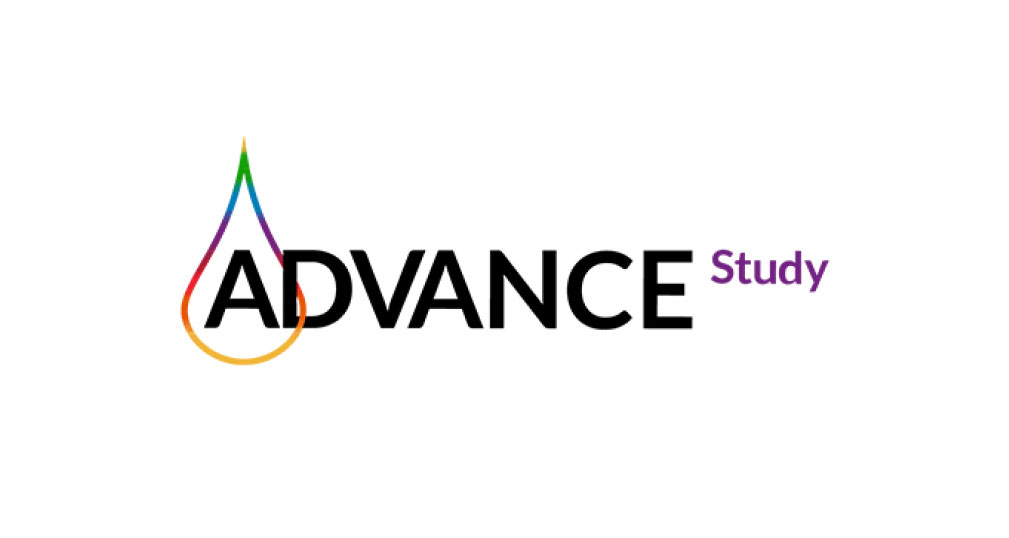Three of the nation’s largest blood centers have launched a pilot study through a contract funded by the U.S. Food and Drug Administration (FDA) that could potentially lead to changes to blood donor eligibility for men who have sex with men.
Vitalant, OneBlood and the American Red Cross, together representing approximately 60% of the blood supply in the United States, are conducting the ADVANCE study, which stands for Assessing Donor Variability And New Concepts in Eligibility. Participants who are 18 to 39 years old are needed in eight communities as the study ramps up.
The study is focused on evaluating alternatives to the FDA’s blood donor deferral policy for men who have sex with men (MSM). FDA recommends that a man who has had sex with another man be deferred from donating blood for three months following the most recent sexual contact with another man. The FDA adopted the three-month deferral policy in April 2020.
The purpose of the new study is a first step in determining whether a different donor deferral can be used at blood centers nationwide while maintaining the safety of the blood supply. For this to be possible, a change would need to be made to the donor history questionnaire.
The donor history questionnaire consists of a series of questions that all potential blood donors answer before donating. The questions assess risk factors that could indicate possible infection with a transfusion transmissible infection, including HIV.
“The ADVANCE study is a first step in providing data that will help the FDA determine if a donor history questionnaire based on individual risk would be as effective as time-based deferral, in reducing the risk of HIV in the blood supply,” said Brian Custer, Ph.D., vice president of Research and Scientific Programs with Vitalant Research Institute.
Participants in the study will have a blood sample drawn for HIV testing and will answer different questions designed to determine individual HIV risk factors. The study will assess if the questions related to behavior are effective in distinguishing between men who have sex with men who have recently become infected with HIV and those who do not have HIV infection. The findings of this study will help determine the next steps that would be needed to modify the donor history questionnaire.
“If the scientific evidence supports the use of the different questions it could mean gay and bisexual men who present to donate would be assessed based upon their own individual risk for HIV infection and not according to when their last sexual contact with another man occurred,” said Susan Stramer, Ph.D., vice president of Scientific Affairs, with American Red Cross Biomedical Services.
“The ADVANCE study is groundbreaking because it’s the first time a study is being conducted that could result in individual risk assessment for men who have sex with men to donate blood,” said Rita Reik, M.D., chief medical officer for OneBlood.
To gather the necessary data the blood centers are partnering with LGBTQ+ Centers in Washington D.C., San Francisco, Orlando, New Orleans/Baton Rouge, Miami, Memphis, Los Angeles, and Atlanta. The study will enroll a total of 2,000 participants (250 – 300 from each area) who meet the study eligibility criteria.
The data collected from the ADVANCE study will be submitted to the FDA who will review the findings and decide the next steps.
“The FDA is committed to considering alternatives to the time-based deferral currently in place for men who have sex with men, that are based on scientific evidence supporting an effective individual risk assessment-based blood donor questionnaire,” said Nicole Verdun, M.D., director of the Office of Blood Research and Review at the U.S. Food and Drug Administration’s Center for Biologics Evaluation and Research.
For members of the LGBTQ+ community the study is a significant step in the right direction. “We are hopeful the ADVANCE study will conclude that state-of-the-art testing of the blood supply, combined with an individual risk assessment, will support a change to the blood donor deferral policy so that all men who have sex with men can be considered potential blood donors,” said Denise Spivak, CEO of CenterLink.

